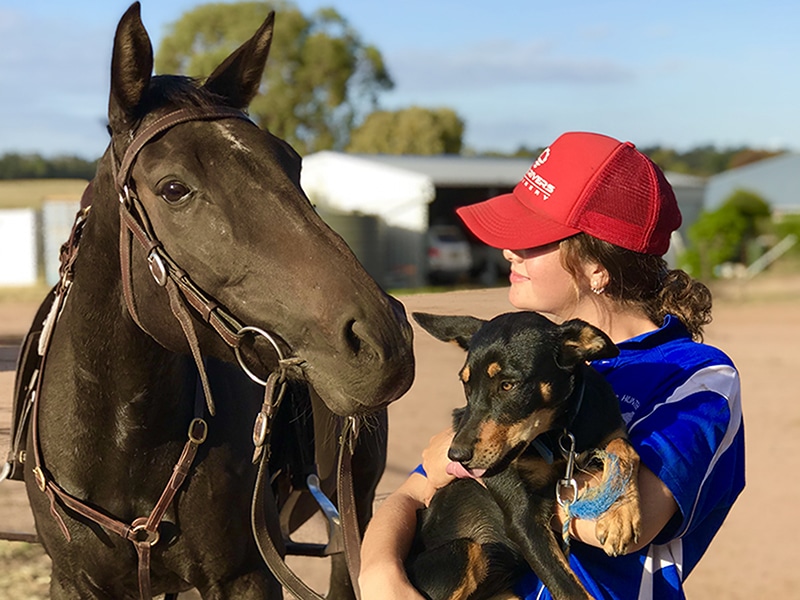
As our kids trekked back to their boarding houses for the new school year late last month, we knew many of them had home firmly on their minds.
Even those young people who are enthused by boarding and all it offers, still have feelings of angst as they drive away from home and family. Add a holiday spent on the frontline of drought, feeding stock and carting water, or having to evacuate home while the landscape burns around you, and the feelings of angst and anxiety become greatly heightened.
We will be ok
Earlier this month, Isolated Children’s Parents’ Association (ICPA) NSW publicity officer, Gabie Le Lievre posted this on their Facebook Page:
As our kids head back to school after a holiday of being “back in the team” at home…a lot of them are leaving at a time when they know there help at home would be amazing. So, it’s hard for them to leave the family behind to cope with it all.
On top of that, they have the demands of school and boarding school life.
I know our CEO will now be managing remotely from his “off-farm” gig i.e. boarding school.
Building resilience is one thing our kids sure know about.
To all those amazing kids. We thank you so much for all that you do—we couldn’t do it without you. However, we also need you to “do what you need to do and that’s your schoolwork”. We will be ok.
GABIE LE LIEVRE, ICPA NSW, FACEBOOK 5 FEBRUARY 2020
You read
The reality of what is happening in family homes often goes untold
ICPA Queensland president, Tammie Irons took the opportunity at the start of the new school year to remind heads of schools across Queensland of just what boarding children were bringing back to school with them as well as their luggage.
She says that while there’s been media coverage of the drought, the reality of what is happening in family homes often goes untold – there’s not only the feeding of stock and carting of water, but there’s dealing with water shortages inside the home, being part of conversations about how to make budgets stretch further, the daily visual of parched landscapes, dust storms, heat, flies and more. There were many children who didn’t have a summer holiday at all.
Monitoring the wellbeing of boarders very closely
For children across the east coast and ranges of eastern Australia, there was the threat of bushfire, the devastation of so many communities, and then the reality of life after fire. Months of heightened anxiety rippled across communities and through families.
The mental health and wellbeing of students is central to schools in the Boarding Schools Expo community. We know many of the staff at our schools are monitoring the wellbeing of boarders very closely.
What’s important for parents to know is if they have a concern about their child at school, they should talk to the appropriate staff at the school.
Counselling service, Lifeline has resources available online about strategies for coping after natural disasters or bushfires. They suggest children are given extra attention and reassurance that they’re not responsible for what’s happened; that they know it’s okay to share their feelings — and that as parents we do that too; include them in discussions about plans for the future; and that getting back into a normal routine as quickly as possible can help provide sense of security. Finally, if things aren’t getting better, to seek professional help at school or beyond.
This comes back to Gabie Le Lievre’s message to boarding children: …we also need you to “do what you need to do and that’s your schoolwork”. We will be ok.
Like dealing with homesickness, distraction is one of those things to add to the list. Ensuring your child has a favourite sport, arts or other co-curricular activity is important. A more low-key reassurance is knowing they have good friends around them who they can relax and talk with, and who can help watch out for them if they’re struggling.
Resources
LIFELINE HELP TOPIC: https://www.lifeline.org.au/get-help/topics/recovering-after-a-natural-disaster
Share